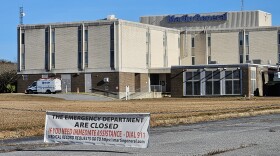Health care organizations in North Carolina are expanding an initiative to see how doctors and pharmacists cooperate to streamline patient care.
Community Care of North Carolina has already set up a program in which 3,000 GlaxoSmithKline employees see doctors who coordinate all their treatment.
But CCNC President Doctor Allen Dobson says that primary care physicians don't always know all the medications a patient is taking, especially if they're seeing other specialists for multiple conditions.
So Dobson says they're bringing UNC Chapel Hill's Eshelman School of Pharmacy on board to figure out how to fill gaps in care.
“How do we need to train pharmacists to be a (sic) integral part of the medical team? What are the new models of practice for pharmacists that will allow them to really help patients, besides just putting pills in bottles?”
Dobson says a designated pharmacist would know all the medicines a patient is taking and whether the drugs could interact negatively.
Jon Easter is Senior Policy Director at GSK. He's also a pharmacist.
“The point here is that someone needs to take a more holistic view of a medication profile to make sure that it's appropriate for that patient, that it's the right dose, and that, ultimately, if all those things check out, that it's the right outcome for that patient.”
He says the pharmacy school will study how professionals could better communicate with doctors about a patient's meds, and make sure patients know how to use them correctly.









